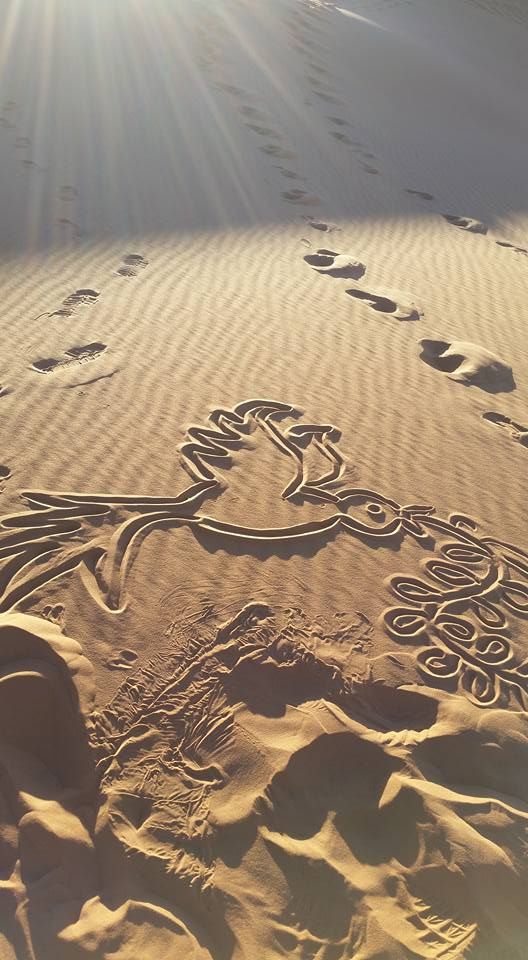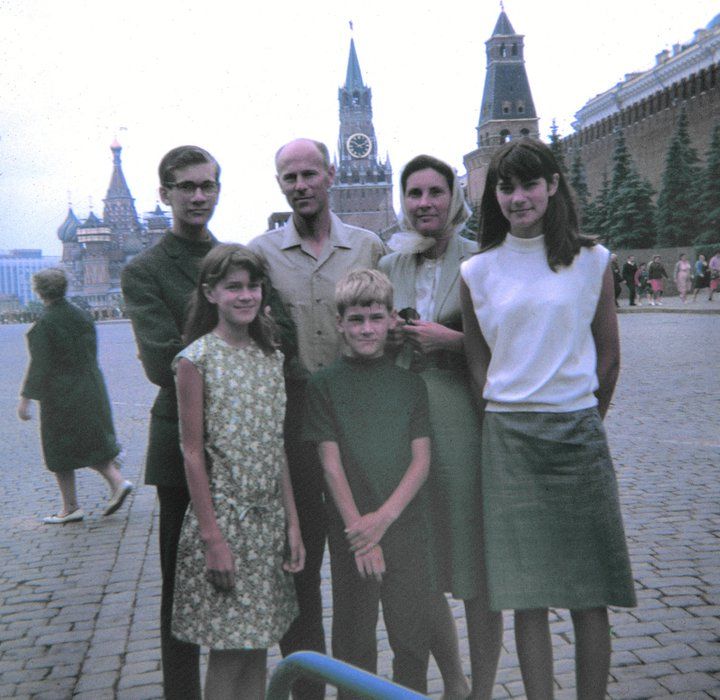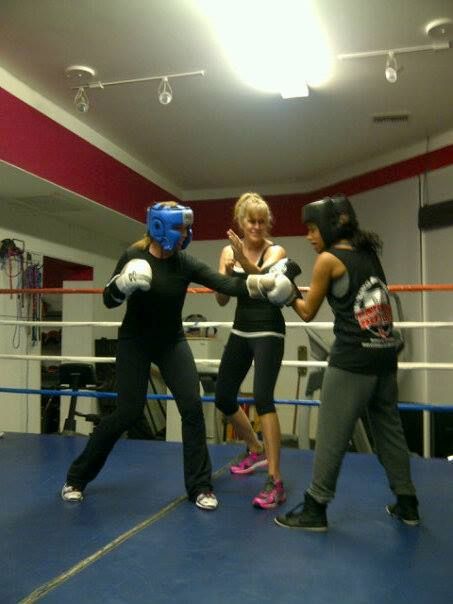Constance A. Dunn interviews the founder of My World Project, Karen Hunt. Hunt, aka KH Mezek, is the author and/or illustrator of nineteen children’s books and the author of the YA Urban Fantasy series, ‘Night Angels Chronicles’. An excerpt from her childhood memoir ‘Into the World’ won the 2015 New Millennium Writings Nonfiction Award. She is also the co-founder of InsideOUT Writers. She is a 2nd degree black belt in Tang Soo Do and has trained in boxing, kickboxing and Eskrima for over twenty years. Prior to traveling for My World Travel, Hunt traveled all over the world as the daughter of Christian fundamentalists.Â
Just to get everyone on the same page, what is My World Project in your own words?
My World Project is a literacy program that connects youth in remote areas of the world through art and writing, encouraging them to realize that their ideas matter and that their voices can be heard across borders. It’s a simple project. With words and pictures, children of any age share what they love most about their world and what is most challenging. Then, they each write a word that means the most to them. Together, the group creates a large painting of their world to share with others.
How did My World Project get started?
I’ve been doing art and writing projects with youth for over twenty years. As a child, I lived in other countries, way back in the 1960s, when it wasn’t common to see a child from Los Angeles attending a village school in a far off place — it still isn’t common, I’m sure. But those experiences helped me understand what it’s like to feel isolated and misunderstood. On top of that, I grew up in a conservative religious environment that reinforced that feeling of isolation, of being different, of not fitting in. I suppose, reduced to its simplest form, these are the core reasons why I became interested in helping children who felt powerless, misunderstood or isolated to have a voice. In 1995, I went into Central Juvenile Hall with the desire to teach creative writing to incarcerated youth. I started working with a group of girls all facing life sentences for serious crimes. Out of that experience grew InsideOUT Writers, now a nationally acclaimed nonprofit. In fact, one of the girls from that original, first class, Silvia Sanchez, is finally getting out after over twenty years in prison. We remained friends all this time. Another girl from my first class, Erika Rocha, who entered juvenile hall at age fourteen, was also scheduled to be released. Tragically, she just committed suicide a couple of weeks ago. It was, and continues to be, extremely important work. Those first girls and the incredible experiences I had at the writing table feature quite a bit in my writing. I built that organization and was its president for about seven years. Once the organization was on its feet and doing well, and some big names got involved, I moved on. I wanted to focus once again on my own writing. However, I never stopped my love for working with youth. I continued teaching in rehab facilities and I did some awesome projects, such as an exchange of art and writing between probation youth in Los Angeles and youth on the Shankhil Road district of Belfast — the arterial road that divides Belfast and has the most violent history. I was on a fellowship to Tyrone Guthrie Centre in Ireland, an incredibly beautiful and awe-inspiring place, and I met this amazing, vibrant artist there, Clinton Kirkpatrick, and we decided to do this project together.
I love to travel! I could happily live out of a suitcase. Right now, I am in Sucre, Bolivia for two months, drinking in this gem of a city and finding inspiration for ‘Cave of Secrets’, the third book in my ‘Night Angels Chronicles’ series. I have been fortunate to receive fellowships and grants to write in amazing locations. In November of 2015, I was invited on a fellowship to Café Tissardmine, in the Sahara Desert, in Morocco. I had been to Morocco as a child and it made a huge impression on me so I was excited to go back. I suddenly thought, wow, why don’t I see if I can work with the kids in the village? I’d had the idea for this project for some time and had been waiting for the right opportunity. This seemed to be it. I had no idea before I went if I would be able to succeed in my goal, or what to expect once I got there. At the same time as I was going to Morocco, two young women activists and dear friends of mine, Leia Marasovich and Jackie Lowe, were going off on adventures to interesting places. Jackie was starting university at Humbolt and Leia was going to Ecuador for a few months. I suggested that they do this project and they were excited by the challenge and the opportunity. Up in Humbolt, Jackie met Tina West, a teacher on the Hoopa reservation. Jackie introduced Tina to the project and Tina did an amazing job with the kids in her class. The artwork that they created and the stories it tells about their lives are very powerful. Leia went into the Amazon and did the project with the Moretecocha children. In order to reach them she had to take a small plane and travel a long distance through the jungle. That was the beginning. Getting together and deciding that this was something we wanted to do. And doing it.
How do you choose a school or village for the project?
It’s pretty organic right now. Basically, if someone I know who has experience working with kids as a writer or an artist is going someplace remote and wants to do this project we can make it happen. And I would invite people to contact me if they think this is something they would like to do. When I went to Tissardmine, I knew I had one month to get to know the kids and make connections. The children were so friendly and curious. I started going out in the afternoons with drums and meeting them on the dunes, where we would play and drum until sunset. Another one of the artists in residence, Julie Parenteau, came with me and we took art supplies and the kids started drawing. Then, I walked up to the tiny school that stood on a hill above the village and met the teachers, Habib and Hafid, and they were fantastic. I have great faith in and respect for teachers. Sure enough, those two guys invited me into the school and we spent three days with the kids, doing the project. It was really sad to say good-bye.
In June, Leia is going to Slovenia and she will explore possibilities of doing the project with Syrian refugee children there. I know a poet in Nigeria, Rasaq Malik Gbolahan, who is interested in doing the project there. I have a friend, Barbara Forsey, who just moved to Costa Rica and she is exploring possibilities. Another friend, Elizabeth Thorn, is an English language teacher in Armenia, Columbia and has just completed the project there. So, it is moving forward in an exciting way.
Why aren’t you organizing in an “official†way?
My World Project is a baby, only a few months old. However, I have been doing similar projects for many years. So, in that sense, it’s been around a long time. I know what it’s like to build a nonprofit from the ground up. With InsideOUT Writers, it happened organically and that’s how My World is happening. I think that something like this needs to start from the right place with a firm foundation. When you start something like this, there is nothing, just a vision. It takes a certain tenacity and will to turn a vision into something tangible, something real. Then, you have to nurture it with love and care. First and foremost, you must do it. If your heart is in the right place, and you have a good mix of practical expertise and creativity, it will grow from there.
At this stage, I’m not involved in actively seeking out grants. That is not to say that I would turn one down if it were offered and it were the right fit. One of the things I have learned, is that once you start accepting money from foundations or anywhere really, they often — not always — have their own agendas. There are many wonderful small foundations who you can build a relationship with over time and they will be supportive because they genuinely believe in what you are doing. However, the further along you go, if you’re not careful, you can find yourself compromising your original intent, by fitting in with someone else’s agenda, for the sake of the money. And you can easily begin to justify these compromises. And, certainly, there are always justifications for accepting money, often good ones. It is like the beginning of a relationship when it is just the two of you, before your families and the rest of the world gets involved and starts giving their opinions. You are just enjoying building and strengthening your relationship without everybody else’s input. This is extremely important, or you will not have a firm foundation and when the first challenge comes along you can easily fall apart. With InsideOUT Writers, we kept it simple for years. Writers heard about it through the grapevine and started volunteering to teach. When it came time to grow and start accepting funding, we had a firm foundation and an excellent reputation. We had shown consistently, day after day, that we really cared about what we were doing.
For me, this is a way of life. It isn’t a “cause,†it isn’t a “movement.†I can’t put some spin on it. There aren’t any buzz words. It is how I choose to live and I really can’t help it, it’s so much a part of who I am. When I was a children’s book author, years and years ago, before I started InsideOUT Writers, I would go into schools because that’s what you do as an author, you go to schools to promote your books. But I wasn’t satisfied with just promoting my books, it didn’t feel right to me. So, I started a series of workshops called Wordpower. Over the course of three days of writing exercises, I would encourage kids towards critical thinking, to not be afraid to explore their own thoughts and to express them. The last writing prompt was: If you had fifteen minutes to stand in front of the entire world and you knew everyone was going to listen to you, what would you say? A defining moment for me was when one girl in a posh school in Pacific Palisades, about thirteen years old, very excitedly got up to read what she had written and she went on and on about how there was shoe sale at the mall and, oh my God, who doesn’t love shoes, right, and we should all go out and buy shoes, because everyone needs new shoes right? And then, at a certain point, after raving on about the shoes, a look of realization came over her at what she was actually saying and she looked at the other kids and saw their expressions of derision, at which point she hastily added on, oh, and there are children starving in the world so we should feed them.
Wow, that hit me hard. That’s when I went on a personal quest and started exploring what might happen if I worked with kids from more challenging situations. I met a woman named Alma Woods who was responsible for single-handedly getting the Watts Library built. And to illustrate the politics, they didn’t want to name the library after her, they wanted to name it after some big-wig politician and there was a huge outcry and they had no choice but to buckle under public pressure and name the library after her. She was a simple lady, lived in a simple house in Watts and I would go and visit her and “sit at her feet†as it were, she was a real guru, and she taught me so much! She would take me around her neighborhood and I saw Watts through her eyes. If there were kids loitering outside the liquor store she would reprimand them and they would hang their heads in guilt and listen to her. She was respected. She was fearless. I grew to love her. She encouraged me to follow my heart and not be afraid of where it led me. It was after that that I went into Central Juvenile Hall and talked to the principal, Dr. Arthur McCoy, an older version of the nutty professor and the most amazing human being, and he let me start teaching there, along with the amazing teacher in the girls’ school, Cheryl Neely.
Like a beautiful, magical web, one person has led to another in my life. Not big celebrities or what you would call “movers and shakers,†but the salt of the earth people. The ones who really have the power, because they don’t care about it. They are the ones who truly balance the good against the evil. The ones we never hear about. I know I use the word amazing a lot but really, there is no better word for all these people.
You have a background traveling as a child. Can you tell us about that?
Yes, it was rather unusual. It was the 1960s and my dad literally heard the voice of God telling him to become a writer. He gave up his successful business career and we started traveling the world so he could gain inspiration for his books. We had incredible experiences, such as escaping out of Egypt right before the Six-Day War, smuggling Bibles into communist countries and living in a 17th-century castle in Switzerland. I write about all these adventures and relate them to what is happening in the world today in my childhood memoir, ‘Into the world’ — a young girl’s journey to free herself from fundamentalist Christianity. Everywhere, we met people wise, devout, kind and generous people of diverse faiths and cultures. I began to question why they should be going to hell when they were no different than anyone else, just trying their best to figure out the meaning of their lives. My dad went on to become one of the most influential Christian writers of the 1980s. I have great respect for him and my mom. They lived what they preached. But I chose a different path in my life and in my writing.
What made you depart from the strict belief system of your father?
When we are children, we are in an environment, and we accept it, whatever it is, and whoever it in charge, whoever is taking care of us, we depend on them and believe in them. Our world is confined by what they teach us. So, I was raised a fundamentalist Christian. My dad was in charge and he had a direct line to God. My mom was next in line and we as children obeyed. It was a very orderly world, where you knew your place. And I should emphasize that it was a loving world, and a secure one. I felt completely secure in the belief that my dad had all the answers. I was raised a Plymouth Brethren. Not a lot of people know what that means, but Rebecca West, one of my favorite authors, made a great comment about it in an interview with The Paris Review Fiction No. 65. She says her paternal grandmother “was a member of the Plymouth Brethren and a religious fanatic with a conscience that should have been held down and, you know, eunuchized or castrated.†I can appreciate this description. Religious fanatics are tormented by a conscience that tells them they must always do right and good and they are never right or good enough and so they must continually justify themselves by debasing those of different faiths, even while trying to act as if they “love†them.
Christians believe that they are going to heaven and everyone else is going to hell. Conservative fundamentalists are raised on the Book of Revelation. It is drilled into us that after the Rapture, God’s Faithful Army will return with Christ to massacre the infidels who remain on earth. Never would it have occurred to me that such a mindset was not much different from that of fundamentalists from other religions. As a child, up until about the age of ten, I didn’t question the inconsistencies, not to mention the absolute horror of such beliefs.
But when my dad made the decision to become a writer and we started to travel to other countries, that’s when things began to change for me. I began to question the narrow beliefs of my upbringing. I began to wonder, blasphemy of all blasphemies, if my dad was simply a seeker of truth, like all the other people that I met. I began to wonder if perhaps that confidence in having a special dispensation was born of fear rather than knowledge. Because it is very frightening to admit that you really don’t know anything. That you have absolutely no idea where you are going when you die. That your faith is simply that: faith. Where we run into trouble as human beings is when we take that completely illogical and impossible leap from faith to knowledge. When we think that because we believe something, it therefore must be true — for everyone. But that acceptance that you don’t know is the very essence, and the mystery of faith. This is something that I write a lot about.
You mentioned you think all types of fundamentalist thinking is flawed. Why do you think this type of thinking is attractive to some people? And how can it be detrimental in your experience?
These are such great questions and at the heart of so much of my writing. Fundamentalism is essentially a strict belief in a literal interpretation of a religious text. But who decides what the “literal†interpretation is? The people who adhere to this path firmly believe that God is telling them what that interpretation is. The danger is that they can then justify any of their actions because God is telling them to do it. This is a big topic and one that fascinates me. If you look at the history of God in the United States in terms of an overarching driving force in government, and you can do that by looking at the references to God by our presidents, God isn’t mentioned in an inaugural speech until 1821 with James Monroe. Up until that time, God was a distant force, not a father-figure with whom you had a personal relationship. With the Protestant revival, all that changed. Monroe’s reference to God was neatly planted into the American people’s subconscious at the same time as the Second Great Awakening of Baptists and Protestants, as a backlash against the beliefs of the Forefathers about a distant force out there somewhere. Since World War I, every incoming president has made a reference to God, although Roosevelt stands out as someone who balked against it. Americans have all grown up in this atmosphere of God being on our side. And we have been affected by it more than we realize. Fundamentalists, conservative Christians, might not learn all the historical details, but it is ingrained in them that God is very real and personal and he talks to you (to the men in charge, mostly) and you obey him unquestioningly. I grew up in a family of intellectuals, so as a child it was okay for me to use my mind and asks questions, but at a certain point, it was understood that my intellect should shut down and I should find the right answers. This was fascinating because no matter how smart you are as a Christian, you have to be willing to shut down a certain part of your brain in order to believe the teachings. There is no deviation.
This is a huge topic. Suffice it to say, if you look back you will see how the rise of Christian fundamentalism in the United States propelled our world into the situation it is in today, with the rise of fundamentalism has grown beyond a fringe element to become a driving, passionate force, giving so many people a purpose to their lives that goes beyond the mundane.
It was a terrible realization that although my parents loved me, and I knew that they did, I was also, in a very real sense their enemy. I was a child of the Devil. I was told this as a teenager. If the Rapture happened, I would be left on earth and my family, and the people I had grown up with in our church, would come back with swords and kill all the infidels — and that included me. My own parents would not think twice about running me through with a sword.
It took courage to stand up against a fear that was pounded into me day after day, year after year. Speaking out against it meant that I became an outcast in the world in which I was raised. No more connections, no more help up the food chain. However, I didn’t see any other alternative, if I was to be as honest as I possibly could with myself.
We are convinced that Islamic fundamentalism is so different, but it isn’t. It is a mirror image of Christian fundamentalism. This might be a controversial thing to say and people will resist it and even find it repulsive, but it is how I see things, based on the experiences I have had traveling and being raised in that atmosphere.
Why bring art to rural places? What do you think creative activities achieve with children in these environments?
Well, the arts should be everywhere, in all schools and communities. For children in rural areas, it is really a chance, like all creativity, to expand their minds, their worlds, their universes. The arts open a door to imagination, helping children believe that they can go anywhere. And by introducing these different far-flung communities of children to one another, they become curious about the world beyond the borders of their neighborhoods, their comfort zone.
How has working with children all over the world affected your perception of the world?
It has shown me, and I hope it will show other people, how similar we all are. When I worked with kids in juvenile hall, you would get kids at the writing table who came from different gangs. They might live one block away from each other, but on the street, they were enemies. But when they sat down at the writing table, what inevitably came out of it, when they began to communicate on a deeper level than just appearance and emotional reaction to a look or a gang sign, was that they were all the same. Inside. Take away the outer paraphernalia, the bravado, the mask that they got used to wearing, and they were all wounded, frightened, seeking children who wanted love and security. Kids are no different anywhere, be it a small village in the heart of the Amazon forest, or a barrio in the heart of Los Angeles, or the wealthiest neighborhood. It has shown me the importance of stripping away the mask and communicating from the heart with one another. It has shown me that we as adults should listen to our children. They have a wisdom and simplicity that we have forgotten.
What do you hope to achieve with this project?
First of all, I want to connect with individual children, to perhaps make a little bit of an impact in individual lives. To keep it simple in that way.
Then, there is the bigger picture, that maybe these young people will be empowered, through realizing that their voices are being heard by a wider audience, to think that what they have to say is important. Perhaps a few of them will grow up to be make an impact in the world in a positive way. You never know what seeds you are planting. Our world doesn’t have to focus on killing and revenge and further isolation. The message can be about acceptance and understanding and learning to co-exist and respect and appreciate one another’s differences, realizing that underneath, we are all the same.
Then, perhaps at some point we can put on an exhibit of the children’s work, and have a child chosen from each community attend a leadership event and then go back and share their experiences with their peers.
You said you have friends who help you. Where did you meet and how did they get involved?Â
I am so happy to be able to acknowledge these wonderful friends. I have people who I have known for years and who have encouraged me through hard times and celebrated in the good times. I live a simple life. I am a single mother and I raised three children on my own. So, when I started doing this project, I called on a couple of friends to help out and they did. It was a small step towards making the project more official, to say, okay these people support this project by donating funds to help me get to Morocco. That, so far, is the extent of the funding. So, I acknowledge Richard and Lucille Reid and Rob Shavell. I’ve known Richard and Lucille for many years, through our sons who have been friends since middle school. We’ve been through a lot together and they’ve been a fantastic support system for me as a single mother. Richard is responsible for the popular College Bowl games and is responsible for the most successful academic college television show in Africa, so he understands the value of My World Project. I’ve known Rob since my days with InsideOUT Writers. He is an advisor for start-up companies and has a wealth of knowledge and experience that I greatly appreciate. Beyond the financial help, these are people I trust and that I know I can call on at any time to ask their advice. It’s a great note to end on because it is the people who understand and appreciate your vision that help turn it from that nebulous idea into something solid and real. They are the driving force behind the magic.

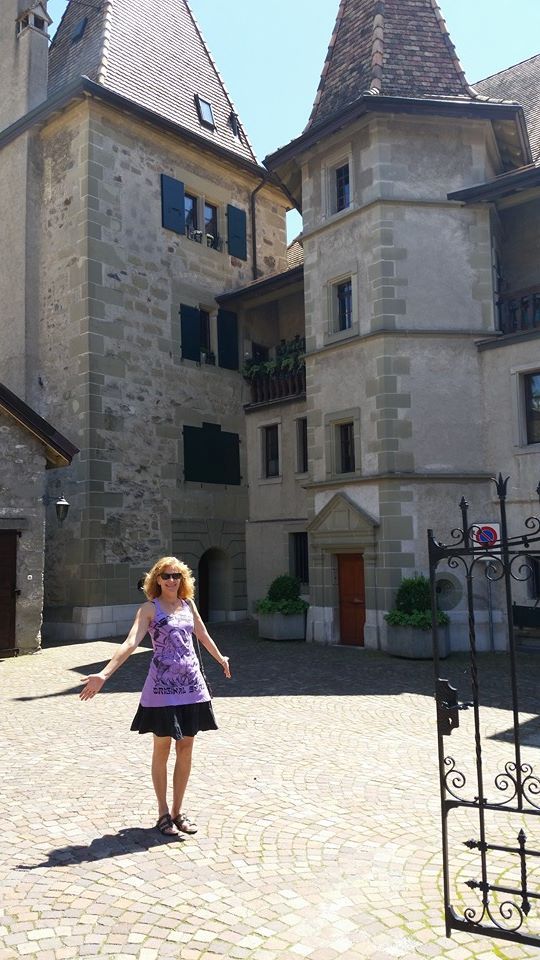
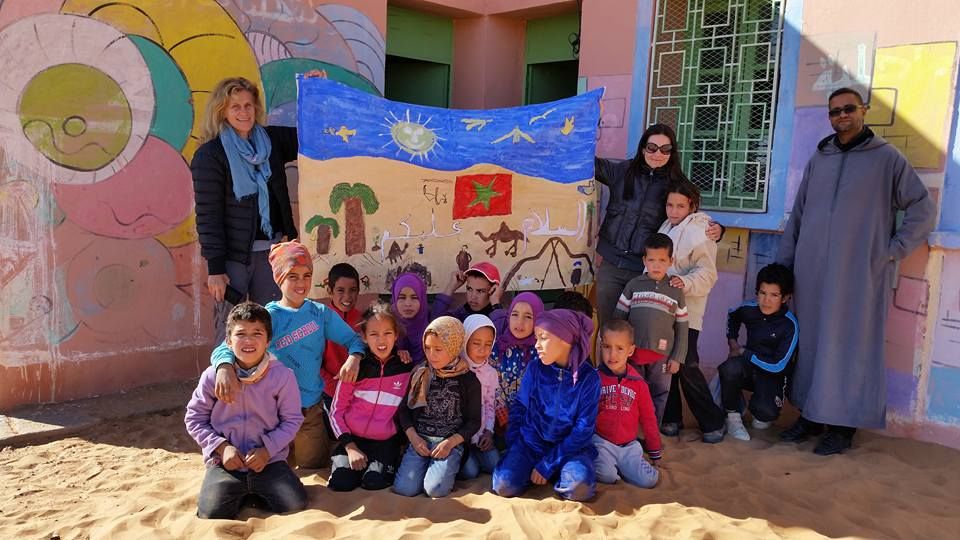
![12316065_10156377353505360_4385607117225599351_n[1]](https://journal.themissingslate.com/wp-content/uploads/2016/05/12316065_10156377353505360_4385607117225599351_n1.jpg)
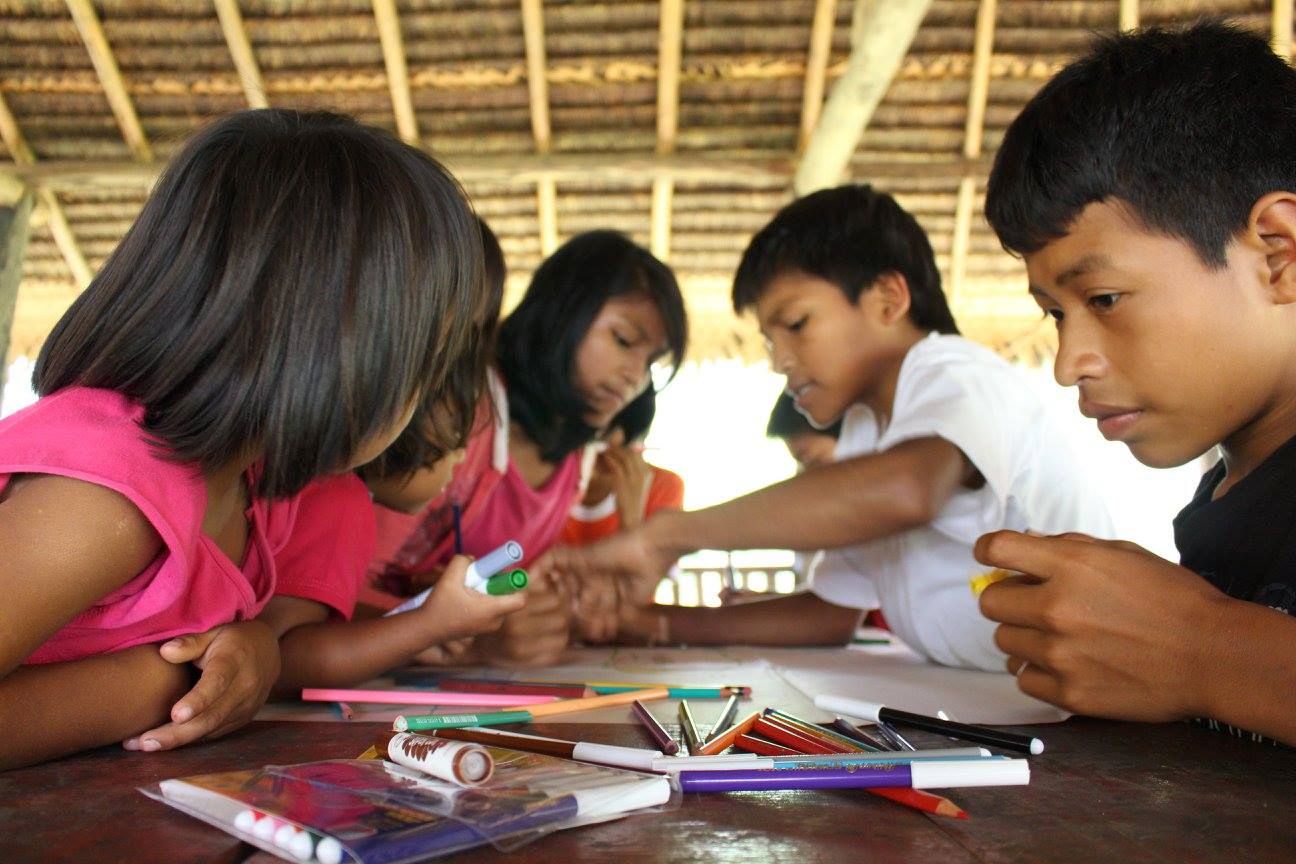
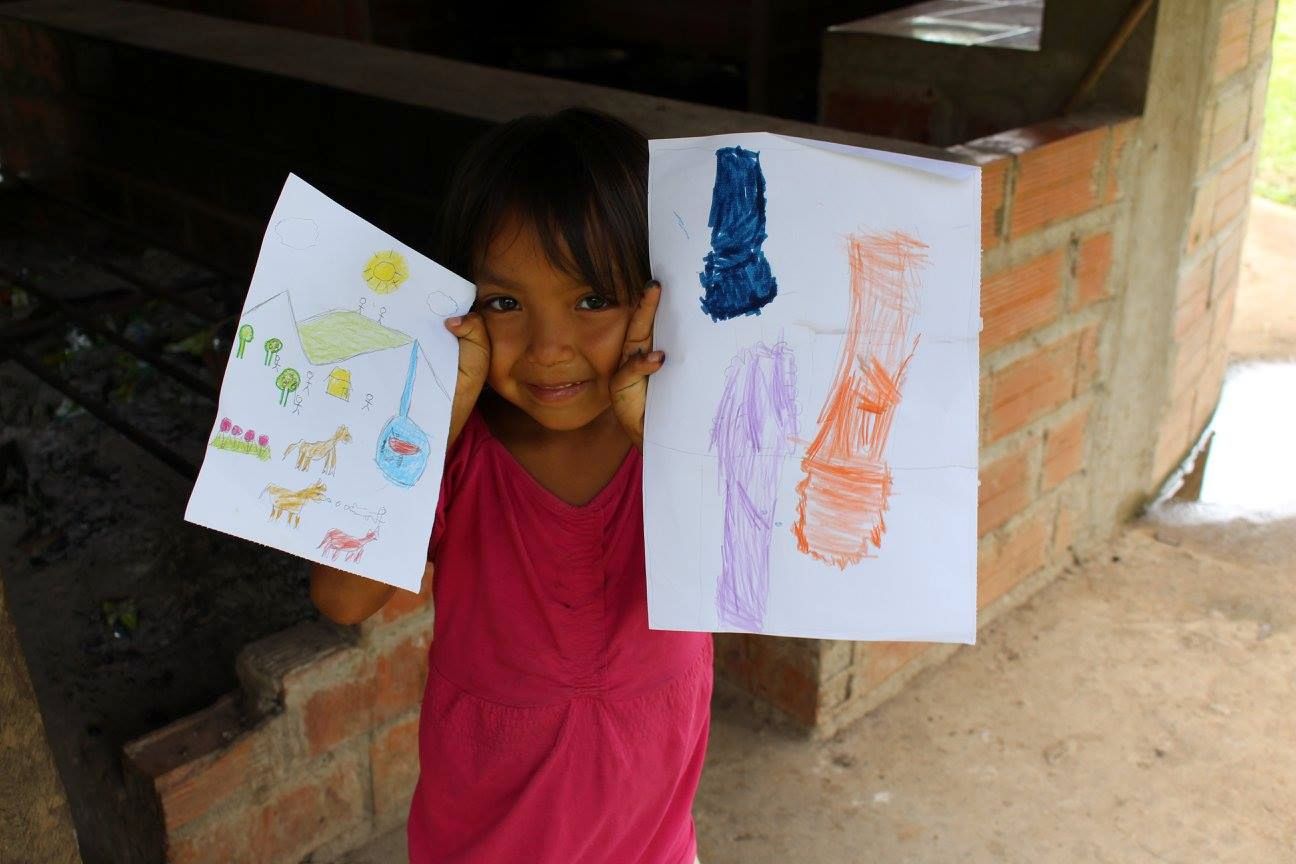

![12417994_466253713583339_8233949599346108662_n[1]](https://journal.themissingslate.com/wp-content/uploads/2016/05/12417994_466253713583339_8233949599346108662_n1.jpg)
